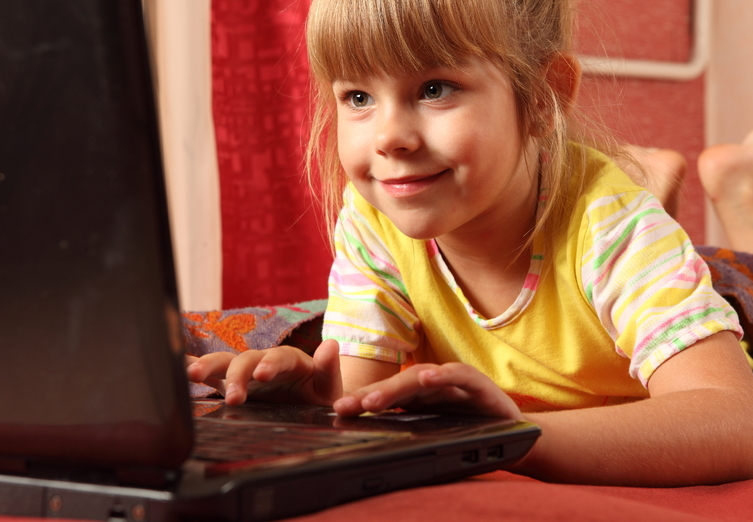Reasons Why Kids Should Avoid Social Media
According to Consumerreports.org, „7.5 Million Facebook Users are Under the Age of 13“. Did you know that, parents? Do you want to know what your little kid is doing on the Net? Chances are, nothing you would like. And you can understand why.
A lot of adult content
It seems as if it were everywhere – so it would be quite difficult for a child to steer clear of adult stuff. Following sites of recording artists and actors/actresses alone can turn up a good deal of nudity and more. Children can share a lot of material that is downright erotic. Advertisements use mature concepts to such an extent that you can come across naked bodies almost in every place you go.
Surfing the Internet properly requires mastery that children don’t possess
It is great when parents actually teach their child(ren) how to use social sites and how to surf the Internet without causing all kinds of problems, yet it is not possible for them to gain the sagacity of a grown-up person. There will be errors and mistrials before they get the hang of it properly.
It is greatly distractive
For a child it is very difficult to resist the multiple distractions showering on them from social media – there’s just too much of it to be brushed away easily.
The wrong kind of influence
If your tween has grown dependent on social media with their endless streams of updates, posts, photos and videos showing that people are engaged in activities that you won’t condone, your influence on them would definitely be on the wane.
Peer pressure has always been a factor to reckon with, and social sites have made it even stronger. Kids who are sensitive, susceptible and seeking their peers’ approval can go under very easily. Socializing on the Internet requires a stronger backbone than kids have.
Breach of law
Children’s activity online is regulated by the Children’s Online Privacy Protect Act designed to protect personal details of underage children and prevent their leaking on the web. It is in conformity with the COPPA law that sites ask you for a verification that you are of age. If a child is allowed, or gained the access to a social networking site before it is permissible, they cannot be protected by that law and your kid’s personal information may be open to all and sundry and find its way onto controversial websites.
Stalkers, other undesirable contacts
Shady people infesting social media sites pose a very important problem why it is better to keep the tweens and teens off online socializing. Stalkers and importunate people can send your child messages, engage him or her into undesirable conversations and find their personal details by hacking their profiles.
What’s more, Facebook offers GPS tracking, especially from certain locations, so your child can be tracked down with perfect ease.
There are addictive apps that capture and hold kids’ minds
The middle school years involve our children into a highly active process of neurological development. Myelination is going on, the brain is fiercely busy with all sorts of cognitive processes. Teens are absorbing information and prioritizing it for future activities.
All of the social networking sites were designed with the idea of your spending a lot of time on them and putting in much effort to update your profile.
The apps that are employed for upkeeping social media activities usually give users a dopamine jolt every time they upload new content. The effects of such jolts on the brain haven’t been studied sufficiently so far.
Whatever we may think of social media, first and foremost these platforms are for entertainment purposes. Neither we nor our children derive loads of useful information from there. It would be more productive to spend this time on studying, favorite hobby, or maybe just resting before the next accomplishment.
When this habit gets developed early on, it can pave the way to insidious addictions.
Social media can instill a “more is better” attitude which is not right
Social media are all about overdoing: you cannot have so many friends in real life! You are also expected to go overboard with other online social activities.
Social media can make you cut down on your real-life relationships
As children increase their social sites interactivities they can rely less and less on face-to-face interrelations – but this will derogate from their social skills which are momentous for successful career building.
Time gets thrown away
It is a problem even for adults to limit their time spent on YouTube or checking their Twitter followings – what can be said of children then? They get lost in time and cyber space and may not be aware what they are missing wasting all these hours on end.
You might not have noticed it or thought much about it – but consider the issue: you may have to wean your kid(s) off online life which can be dangerous and addictive.
It provides a mighty distraction from things that are important
Undoubtedly doing homework requires a lot of mental effort, while roaming about Pinterest doesn’t. So it is understandable that almost any child will prefer to look through walls on social sites rather than do what they ought to do. Parents find that children can’t be separated from their smartphones and tend to smuggle them into classrooms relying on their providing distractions. Family evenings together may get spoiled when the apple of your eye refuses to stop sending messages or scrolling for updates.
Loose are haters, bullies, trolls
Any person who has a profile on social media is open for trolling or bullying. Children, especially younger ones, can be highly vulnerable to online offence and vituperation. Vicious peers could cause them a lot of pain by subjecting them to ongoing bullying.
Children may not realize that social media distorts reality
Whereas at school children experience mostly peer pressure, on the Internet they come across all kinds of trends from different countries. Many glamorous personalities can overwhelm them and generate a feeling they would never be able to become such impressive and remarkable individuals.
Moreover, it is not only about looking gorgeous. Platforms vie one another in setting behavioral trends and organizing challenges which arouse interest. Many of them are silly or irritating, but now and then one can run into something that could be dangerous – we see an example of that in the Tide Pod Challenge.



